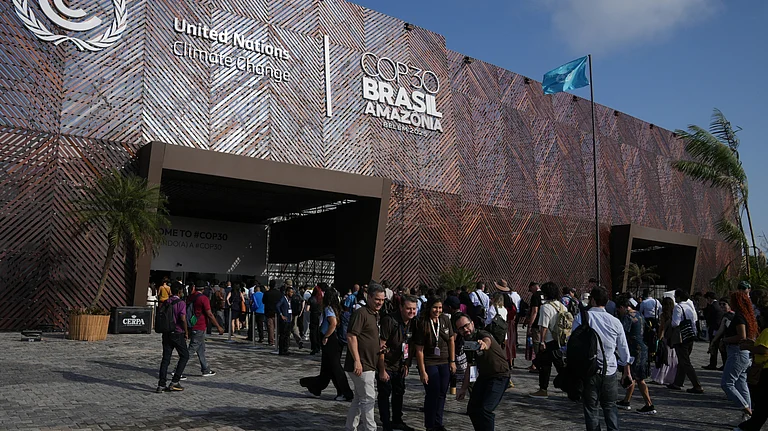India warns climate trade measures risk turning into protectionist tools.
Calls for developed nations to honour finance and technology commitments.
India seeks equitable access to clean technologies without IP or market barriers.
India Calls for Equity, Opposes Trade Barriers, Seeks Fair Access to Climate Tech at COP30
India urged multilateral cooperation, fair finance, and equitable climate technology access for developing nations at COP30 in Brazil
India called for multilateralism, stressing on equity, common but differentiated responsibilities and respective capabilities (CBDR-RC), and the full and effective implementation of the Convention, its Kyoto Protocol and the Paris Agreement at the ongoing Conference of Parties (COP30) in Brazil, according to the Ministry of Environment, Forest and Climate Change.
On November 11, India made two interventions, one on behalf of the Like Minded Developing Countries and another on behalf of BASIC bloc which includes Brazil, South Africa, India and China.
India warned that unilateral climate-related trade measures risk becoming instruments of protectionism, contradict the spirit of Article 3.5 of the Convention and undermine multilateral cooperation. Both BASIC and LMDC reaffirmed that the architecture of the Paris Agreement must not be altered, and that CBDR-RC remains the cornerstone of the global climate regime.
Speaking for BASIC and LMDC, India recalled the historical and ongoing responsibility of developed nations. It was stressed that Developed countries must not only reach net-zero earlier to preserve equitable carbon space, but invest more in negative emissions technologies and most importantly fulfil their obligations on finance, technology transfer and capacity-building to developing countries.
“We, the LMDC, speak here for over half the world’s population. As we celebrate multilateralism, we must be cognizant of the factors that can seriously undermine multilateralism. This is the most opportune moment to meaningfully discuss climate change, related trade restrictive unilateral measures and how they impact our countries,” Suman Chandra, Director, Ministry of new and renewable energy told Hindustan Times.
The Paris Agreement's article 9.1, which requires developed nations to contribute financial resources to aid developing nations, was the subject of an agenda item that India suggested, she added. “In this era of implementation, the needs are among some of the biggest detriments for developing countries. And that is why we have presented our proposal for an agenda…” she added.
Chandra added that it is 33 years of the Convention and 10 years of the Paris Agreement.
Technology Transfer and Innovation Equity
In addition, India underlined the need for reliable, affordable and equitable access to climate technologies at the Opening Plenary of the UNFCCC COP30, in Belém, Brazil. It called for a strong outcome on the Technology Implementation Programme, emphasising that intellectual property and market barriers must not hinder technology transfer to developing nations, according to a news release by Ministry of Environment, Forest and Climate Change.
Speaking for BASIC and LMDC, India recalled the historical and ongoing responsibility of developed nations. It was stressed that Developed countries must not only reach net-zero earlier to preserve equitable carbon space, but invest more in negative emissions technologies and most importantly fulfil their obligations on finance, technology transfer and capacity-building to developing countries.

